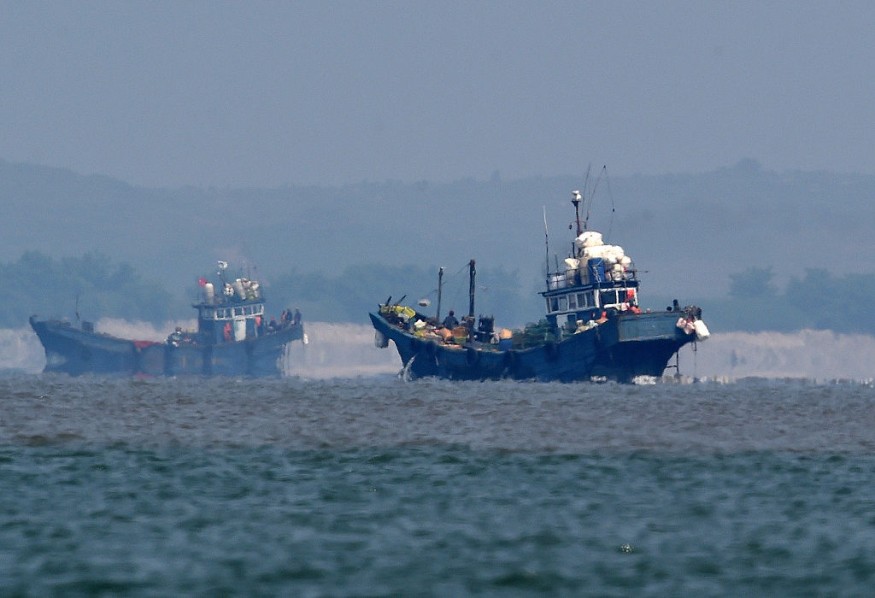The Ecuadorian navy encountered nearly 260 fishing vessels with Chinese flags sailing on the coast of Galapagos Islands.
According to the Island's Governor Norman Wray, the Chinese fleet is within international waters outside the maritime border around the Galapagos Islands and Ecuador's coastal waters.
Every year, Chinese fishing vessels come to the seas near Galapagos. This fleet, however, is the largest in recent years. In an analysis, NGO, C4ADS said that based on their research, 243 vessels out of the 248 boats identified with China, 243 are from companies with suspected records of illegal, unreported, and unregulated fishing (IUU).
Fishing boats and refrigerated containers or reefer to store enormous catches are in the fleet.
Wray said some fleets do not even abide by regulations.

Indiscriminate Fishing Practices
A captain of an Ecuadorian tuna boat said that the Chinese fishing boats pull up everything. He said that they are required to take a biologist aboard to check the catch. When sharks are caught, they have to throw it back to the sea. But for the Chinese fleet, nobody controls them.
The captain said he was navigating through the fleet at night and said that several boats were illuminating the sea to attract the squid. The place looked like a city at night.
The fishing boats had up to 500 lines, each with thousands of hooks. Some vessels turn off their tracking systems when in protected areas to avoid detection.
In 2017, the Ecuador navy seized the Chinese reefer Fu Yuan Yu Leng 999 in the Galapagos Marine Reserve. They found 6,000 frozen sharks, including the endangered hammerhead shark and whale sharks.
Ecuador filed a formal complaint, imposed a $6m fine on the vessel. The 20 Chinese crew members were jailed for four years for illegal fishing.
In Quito, the Chinese embassy asserts that China is a "responsible fishing nation" and does not tolerate illegal fishing. It also said that all the vessel spotted at Galapagos recently were legally operating and is not a threat to anyone.
However, the former mayor of Quito, Roque Sevilla, maintains that the fleet is doing "indiscriminate fishing as it hauls marine life regardless of species or age, which causes severe damage to the quality of fauna in Galapagos.
READ ALSO: Beirut Explosion: How Does Ammonium Nitrate Affect the Environment?
Actions to Protect Marine Diversity
Sevilla said that Ecuador called for a diplomatic meeting with Chile, Peru, Colombia, and Panama to file a formal protest against China.
The Galápagos Islands' representative for Ecuador's human rights ombudsman's office, Milton Castillo, asked the prosecutor's office to inspect the Chinese ships' cargo citing the legal principle of the universal and extraterritorial protection of endangered species.
Ecuador plans to establish a corridor of marine reserves with Costa Rica, Panama, and Colombia to protect vital marine diversity areas, Sevilla disclosed. The passage would ensure Cocos Ridge and Carnegie Ridge's protection, which links Ecuador archipelago to continental South America. Sevilla said that doing such decisive action would protect more than 200,000 square nautical miles of ocean from industrial fishing.
READ NEXT: Saving Giant Panda at the Expense of Leopards, Snow Leopards, Wolves, and Asian Wild Dog
© 2025 NatureWorldNews.com All rights reserved. Do not reproduce without permission.





